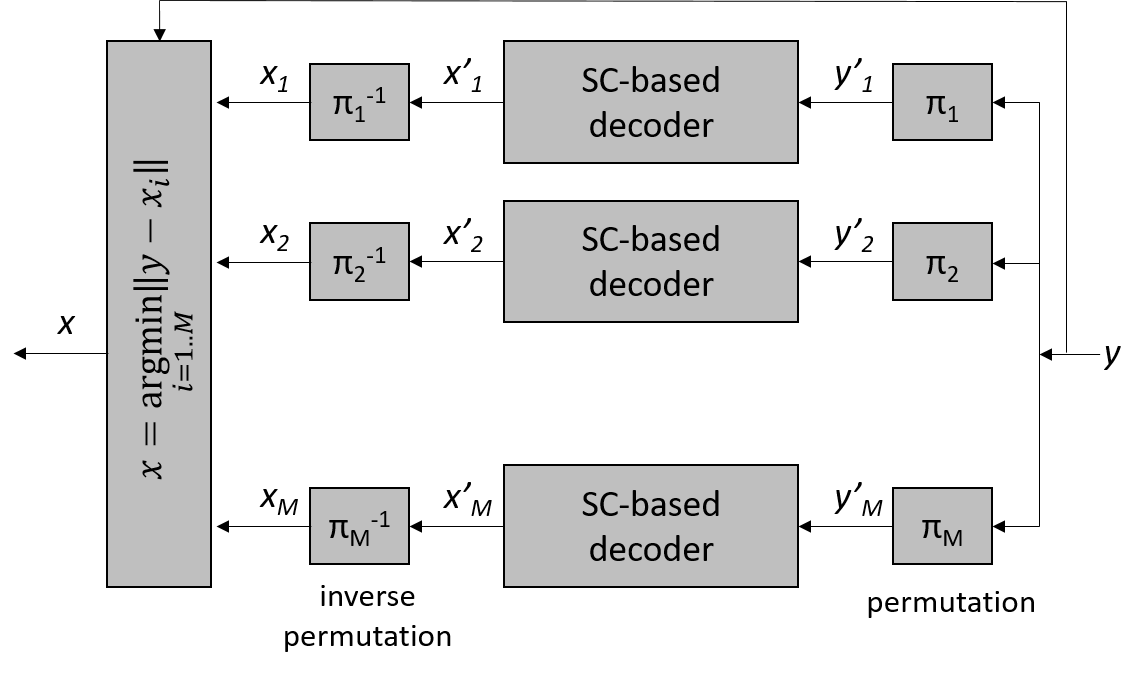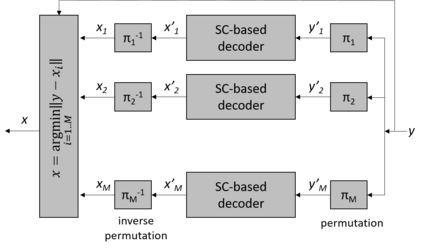In this paper we deal with polar code automorphisms that are beneficial under low-latency automorphism ensemble (AE) decoding, and we propose polar code designs that have such automorphisms. Successive-cancellation (SC) decoding and thus SC-based AE decoding are invariant with respect to the only known polar code automorphisms, namely those of the lower-triangular affine (LTA) group. To overcome this problem, we provide methods to determine whether a given polar code has non-LTA automorphisms and to identify such automorphisms. Building on this, we design specific polar codes that admit automorphisms in the upper-diagonal linear (UTL) group, and thus render SC-based AE decoding effective. Demonstrated by examples, these new polar codes under AE decoding outperform conventional polar codes under SC list decoding in terms of error rate, while keeping the latency comparable to SC decoding.
翻译:在本文中,我们处理在低纬度自成一体(AE)共解码(AE)下有益的极代码自成一体(AE),我们提出具有这种自成一体的极代码设计。相继的取消(SC)解码(Sc),从而基于SC的自成一体(AE)解码(AE)对于唯一已知的极代码自成一体的极代码(即低纬度三角方形(LTA)组的自成一体(LTA)的自成一体。为解决这一问题,我们提供了方法,以确定某一极代码是否具有非自成一体(LTA)自成一体(AE)的自成一体(AE),并以此为基础,设计了具体的极代码,从而使得基于SC的自成一体(UTL)组的自成一体(AE)有效。举例来说,AE下这些新的极代码(Dco化)在SC列表下脱离常规极代码(以误率解码(decode)中),同时保持弹性与SC解码的解码(laten)。





